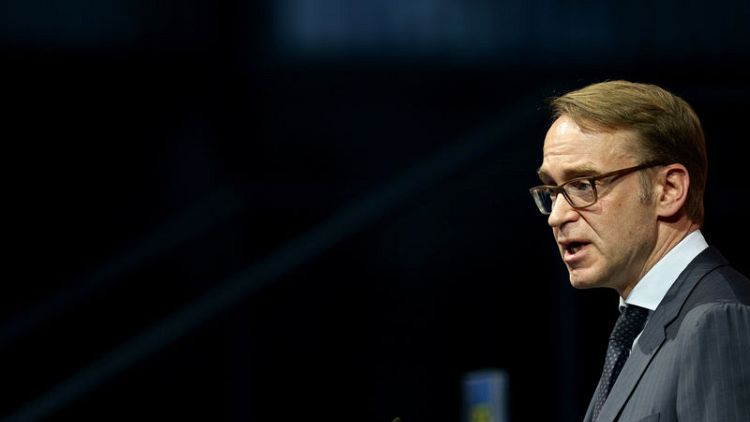BERLIN (Reuters) - The European Central Bank is on course towards a less expansive monetary policy, and the projected inflation rate of 1.7 percent for 2020 is in line with its medium term stability goals, the head of Germany's Bundesbank said in an interview.
Jens Weidmann, a candidate to succeed current ECB President Mario Draghi when he steps down in October 2019, told the Frankfurter Allgemeine Sonntagszeitung that interest rates would likely rise gradually now that the ECB has shifted gears.
"After the latest decisions, a normalisation of monetary policy is foreseeable," Weidmann told the newspaper, adding that interest rates would likely edge up as a result.
"From today's viewpoint, the process will be gradual and it will take a while," he added.
The ECB decided in June to end its 2.6 trillion euro bond purchase programme by the close of the year but said interest rates would stay unchanged at least through next summer.
Weidmann also called for the bank's security portfolio to be pared back, if the inflation rate allowed, to win room for manoeuvre for future crises.
The German central banker said the currency crisis in Turkey would have limited impact on German banks, given improvements in the overall resilience of financial systems.
He noted that Turkey was number 16 on the list of German trading partners, and accounted for just one percent of global economic output.
"It is much more difficult to calculate the indirect impact, for example a general loss of trust that also affects other emerging economies," Weidmann told the newspaper.
Two major ratings agencies downgraded Turkey closer to junk status on Friday after the lira lost some 40 percent of its value against the dollar this year. [nL5N1V9080]
Heavy selling in recent weeks has spread to other emerging market currencies and global stocks and deepened concerns about the economy, particularly Turkey's dependence on energy imports and whether foreign-currency debt poses a risk to banks.
(Reporting by Frank Siebelt and Andrea Shalal; editing by David Evans)



